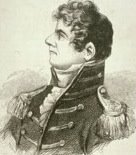Coming about
On the matters coming to light in the past week in the life of our Church, further guidance from the Presiding Bishop, the Executive Council, the House of Deputies, the bishops, and the other bodies of the Episcopal Church will be required and helpful.
It should be a simple thing for the House of Bishops to issue a statement noting that a provision to refrain from consenting to the episcopate those whose manner of life constitutes a challenge to the wider communion until a new consensus emerges, includes those in same sex unions. The bishops' statement can read:
They can also issue a statement noting that the church has not and will not authorize a rite for same sex blessings. It can read:
Obviously on this matter there is another house, the Deputies, who may have their own opinion, and this fact may also be included in any statement coming from the House of Bishops. As a way of respecting the continuing prerogatives and authority of the House of Deputies, no doubt something like it will be issued from one or both Houses.
And of course there is the rest of the church, which has shown a strong willingness to work towards a new consensus on these matters. This willingness will no doubt find renewed strength and focus not only in our Church, but in the councils of the Communion.
Such statements from the bishops will proceed in parallel with an end to incursions and any further attempts to alienate any Episcopal churches without the consent of the national church.
The dissidents will have a primatial vicar agreed to by the PB. Her consent to the person is required. Her oversight and agreement is explicit and her ongoing consent and participation in their councils is mandatory.
As always, the wider Church will have power to agree or not, to any and all candidates for diocesan bishop.
If the dissidents anticipate in this mechanism a further widening in their relations to the greater Episcopal Church, they may be surprised to find themselves being held even closer for the foreseeable future.
The dissenting dioceses as their bishoprics become vacant, may find themselves in receivership, without a diocesan bishop, and under the direction of this council and the primatial vicar reporting to and consulting with the presiding bishop.
If the primatial council mechanism is a way of tying the primates closer to the Episcopal Church, it is also a mechanism for tying the Network dioceses much closer to the Episcopal Church.
It should be a simple thing for the House of Bishops to issue a statement noting that a provision to refrain from consenting to the episcopate those whose manner of life constitutes a challenge to the wider communion until a new consensus emerges, includes those in same sex unions. The bishops' statement can read:
"A provision to refrain from consenting to the episcopate those whose manner of life constitutes a challenge to the wider commuion, includes those in same sex unions. Some of our number do not agree with this. This House remains committed to working towards a new consensus on this matter throughout the wider Communion."
They can also issue a statement noting that the church has not and will not authorize a rite for same sex blessings. It can read:
"The House of Bishops has not authorized a rite for same sex blessings and does not authorize one. Some of our number do not agree with this. This House remains committed to working towards a new consensus on this matter throughout the wider Communion."
Obviously on this matter there is another house, the Deputies, who may have their own opinion, and this fact may also be included in any statement coming from the House of Bishops. As a way of respecting the continuing prerogatives and authority of the House of Deputies, no doubt something like it will be issued from one or both Houses.
And of course there is the rest of the church, which has shown a strong willingness to work towards a new consensus on these matters. This willingness will no doubt find renewed strength and focus not only in our Church, but in the councils of the Communion.
Such statements from the bishops will proceed in parallel with an end to incursions and any further attempts to alienate any Episcopal churches without the consent of the national church.
The dissidents will have a primatial vicar agreed to by the PB. Her consent to the person is required. Her oversight and agreement is explicit and her ongoing consent and participation in their councils is mandatory.
As always, the wider Church will have power to agree or not, to any and all candidates for diocesan bishop.
If the dissidents anticipate in this mechanism a further widening in their relations to the greater Episcopal Church, they may be surprised to find themselves being held even closer for the foreseeable future.
The dissenting dioceses as their bishoprics become vacant, may find themselves in receivership, without a diocesan bishop, and under the direction of this council and the primatial vicar reporting to and consulting with the presiding bishop.
If the primatial council mechanism is a way of tying the primates closer to the Episcopal Church, it is also a mechanism for tying the Network dioceses much closer to the Episcopal Church.


0 Comments:
Post a Comment
<< Home